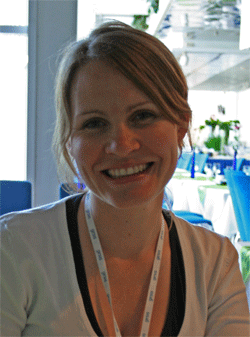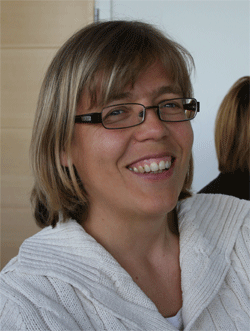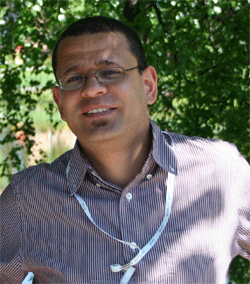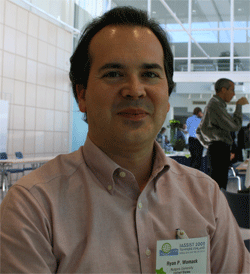
» latest issue
FSD Bulletin is the electronic newsletter of the Finnish Social Science Data Archive. The Bulletin provides information and news related to the data archive and social science research.

Finnish Social Science Data Archive
E-mail: fsd@tuni.fi
Privacy Policy
|
 |

First-timer Experiences of IASSIST Conference
Helena Laaksonen
Several first-timers attend the IASSIST conferences each year. They have either come on their own initiative or been sent by their employers to receive information about the latest developments in the field and to network. This was also the case in the IASSIST conference organised for the first time in Finland, Tampere, at the end of May. For the most of the first-timers, participating is both professionally and socially a rewarding experience and they usually want to visit the conference again. Four first-timers from the IASSIST conference replied to the following five questions posed by the FSD:
- Where have you come from?
- What do you do at your work?
- How did you find out about the conference or who recommended participating?
- What have you learned or how have you benefited from the conference?
- Are you going to participate again in the future?
 |
Michelle Coldrey, Swedish National Data Service, SND, Sweden
Michelle Coldrey's job in the Swedish National Data Service is to distribute data to re-users. She also translates material into English. She has moved to Sweden from Australia. Besides being an IASSIST first-timer, Coldrey is also new to the Swedish data archive. She began her work in the SND last year.
Like most first-timers, Coldrey participated in the conference because it was recommended to her by a member of her own organisation. Her colleague has participated in several IASSIST conferences. "I have received plenty of information in the conference and it has opened doors to several directions. Everything is new to me! It is great that IASSIST is such an open community", says Coldrey and hopes to get a chance to participate in the conference in the future as well.
|
 |
Marianne Johnson, Finnish Information Centre for Register Research, ReTki, Finland
Marianne Johnson's tasks in the Finnish Information Centre for Register Research are largely similar to the tasks of the whole unit. In her work, she promotes the use of register data especially in social and health sciences. In practice, her work includes advising, education, maintaining web pages, and promoting the infrastructure for register-based research and the networking of various register research bodies.
"It is interesting to hear about practices and problems in other countries. There is a great deal of variation between different countries, especially as regards the possibilities to use the register data of statistical authorities", says Johnson.
The representatives of the data archive recommended Johnson to participate in the IASSIST conference. She believes that it would be useful to her to participate in the conferences in the future as well.
|
 |
Raed M. Sharif, Syracuse University, the USA
Sharif has come to his first IASSIST conference through several places. Originally Palestinian Sharif is doing his doctoral dissertation for Syracuse University in the USA. However, he currently collects data for his research in South Africa. He conducts research on the open access to and re-use of public sector information and its social and economic costs and benefits. In addition to conducting research, Sharif also teaches.
Sharif promotes open access to scientific research data actively. He considers the matter especially important to developing countries and works for it in various co-operative organisations, such as CODATA and eSDDC. He heard about IASSIST from an active member of the organisation, who he had met in a conference organised by CODATA. Sharif participated in the Tampere conference as an IASSIST scholarship recipient.
"The conference is a unique environment, in which different fields of science are represented. I have received plenty of information about various projects and networks in the field in this conference", says Sharif. He intends to be an active IASSISTer outside of the conference as well by promoting the common benefits of CODATA and IASSIST.
|
 |
Ryan Womack, Rutgers University, the USA
Ryan Womack's job description changed from librarian to data librarian last year. The IASSIST conference was recommended to him by the previous data librarian. Womack considers it obvious to participate in IASSIST activities, including conferences, in the future as well. "Here I have received plenty of examples and advice on how to proceed in developing various services", he says. Especially the examples on using DDI documentation format will help him in his work.
|
See also:
» Data Archiving and Re-use Experts Gathered in Tampere
» Smallness Is Relative – Experiences of Conference Assistant
|




